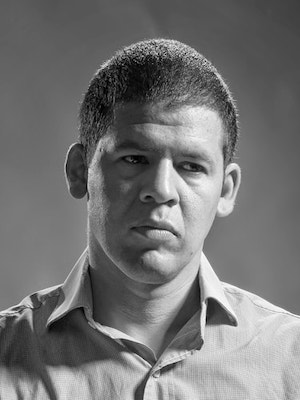Hiring is one of the most delicate and complex things for any company. Choosing the perfect employee (and judging solely from the first impression) is a very slippery slope. This is why the hiring process has been perfected throughout the years. Self-assessment is critical for applicants during the interview process, but how are things best viewed from the other side of the table?

Here’s how employers can better assess job applicants.
Clarify intent.
First, decide what to focus on during the hiring process. You cannot hire the perfect person for the role without knowing their intentions. Here are some essential questions to ask yourself before listing the position.
- What type of person fits the company culture? Try to imagine the personality type that can fit right in.
- What specific traits do you need to focus on in this position? Does the applicant have to be creative? Rational? Intuitive? Also, focus on how they can grow further from this position.
- What strengths are you looking for and what weaknesses you can live with?
Apart from knowing which candidate is right for the role, these answers also help with your advertising strategy. The job listing placement must target the right audience. Look for these specific traits during the interview and focus all your questions to pull these answers out of candidates. This is a great way to assess and filter applicants throughout the process.
Focus on job satisfaction.
During the interview, discussing job satisfaction is imperative. There are two reasons for this. On the one hand, asking about a candidate’s past experiences and what they look for will help you get to know their personality. On the other, highlighting how you tangibly prioritize job satisfaction lets applicants know they would join a safe, healthy, and happy company culture.
Job satisfaction has become increasingly important in the workplace, as it is directly linked to employee productivity, reduced turnover rates, and overall satisfaction with life and career success. As a result, people prioritize job satisfaction when looking for new positions. This also comes in handy when advertising a job. A company description that highlights job satisfaction can be one of the best things you can do to attract more high-quality candidates.
Look beyond the resume.
While it’s true that resumes are the most effective tool for shortlisting candidates during the hiring process, there’s much more to a person than their qualifications and experiences. Resumes have gone “out of style,” and here’s why.
One of the biggest reasons is the accessibility of resume writing services. Resume presentation (e.g., word choice, concise yet compelling language, and highlighting high-impact accomplishments) is no longer a challenge for anyone with access to the right tools, software, and professionals that write and upgrade resumes, cover letters, and more.
Therefore, shrewd employers use a cover letter and resume on the ground floor to shortlist candidates according to experience. People tend to share a lionized version of the truth in a resume, especially talented writers (or those who have hired a professional resume writer to polish their documents). This is why an eye-catching resume is one of many considerations. Resumes have become redundant, and while they’re still necessary, a portfolio or a recommendation can speak louder than a polished, colorful CV. Some companies even use short questionnaires to filter candidates.
Ask focused interview questions.
Always have a clear goal in mind. “Interviewing techniques can be either structured or unstructured,” according to SHRM. “The main purpose of structured interviewing is to pinpoint job skills that are essential to the position. The interviewer asks a specific set of questions of all applicants for the particular position. This straightforward approach makes it easier for the interviewer to evaluate and compare applicants fairly.”
Interview questions should be designed to elicit certain answers. When you ask a candidate: “Where do you see yourself in 5 years?” what can you glean from the answer? And is this information essential during the hiring process? This is where various psychological assessments can be useful.
Instead of asking a candidate how they work under pressure, construct a situation where they’d be faced with a lot of stress, and ask how they would approach it. This approach requires more than a canned answer, such as “I’m fantastic under pressure.” The answer would show you exactly how they would approach a stressful work situation.
Get to know candidates.
While this might be a challenge in certain situations, it’s not impossible to investigate a candidate’s background. Getting to know a little bit about their personalities helps create a friendlier atmosphere. Showing genuine interest in a person can ease the tension and help people feel more comfortable throughout the interview.
Study non-verbal communication cues.
While you don’t have to become an actual psychologist, it’s good to read up on non-verbal cues such as posture, facial expression, eye gaze, gestures, tone of voice, body movements, body orientation, nuances of the voice, attire details, time, and space, etc. These seemingly small cues can add up to huge conclusions to help you assess things about a candidate that you would have missed otherwise.
For instance, if you have two candidates with the same qualifications and level of experience, the most significant factors may come down to one being punctual and polite, while the other was late and boorish.
A lot of effort goes into recruiting and hiring employees. Being prepared, aware, and looking out for non-verbal cues can help you select the perfect person for a position. Coupling this approach with consideration of new interviewing trends and tools can yield even stronger results.
Gergo Vari is the founder and CEO of Lensa. His journey through founding, funding, and exiting successful startups has taught him that the traditional hiring process is broken. That’s why he created Lensa, a job board built on technology that puts people first. His sole mission is to revolutionize the job search for companies and professionals.
© YFS Magazine. All Rights Reserved. Copying prohibited. All material is protected by U.S. and international copyright laws. Unauthorized reproduction or distribution of this material is prohibited. Sharing of this material under Attribution-NonCommercial-NoDerivatives 4.0 International terms, listed here, is permitted.














